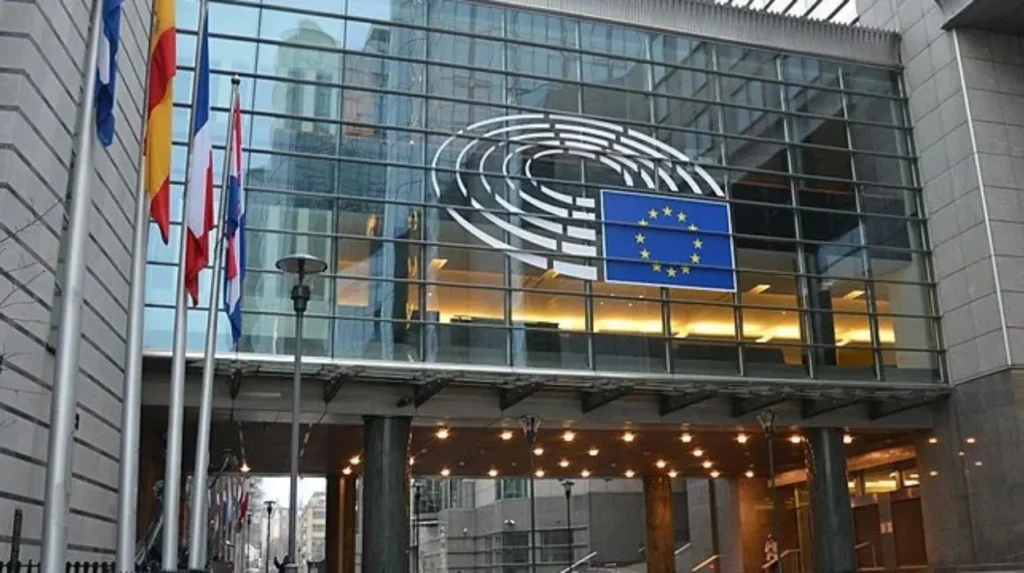A growing alliance of right-wing and far-right lawmakers in the European Parliament is increasingly opposing the European Union’s ambitious sustainability agenda, sparking concerns over the future of key climate and human rights regulations. This coalition threatens foundational elements of the EU Green Deal, illustrating a political struggle that could reshape Europe’s environmental and social policies. Recent negotiations around the Corporate Sustainability Due Diligence Directive (CSDDD) have brought this conflict into sharp focus.
Central to this dynamic is the European People’s Party (EPP), the Parliament’s largest group dominated by German conservative MEPs. Some of these members, led by figures such as Angelika Niebler, are accused of aligning with far-right groups to push for the abolition or severe weakening of sustainability laws like the CSDDD. Their approach alarmingly blends conventional conservative opposition with the far-right’s cultural and political agenda.
Jörgen Warborn, a Swedish EPP representative, while not advocating for the complete elimination of the CSDDD, has joined threats to side with far-right factions if the center-left groups — including Social Democrats, Greens, and Renew Europe — do not offer concessions to EPP demands. This move signals a deepening fracture within the EU’s political center and risks empowering extremist positions within the institution.
The Political Stakes and Green Deal Threats
Manfred Weber, the leader of the EPP and a member of the Christian Social Union (CSU) in Germany, plays a pivotal role. His stance, alongside a strong German CDU/CSU contingent, will likely determine whether the CSDDD and other Green Deal pillars survive intact. The German federal government, led by Chancellor Friedrich Merz, presents an internal contradiction: while Merz himself has called for abolishing the CSDDD in Brussels, his government’s official coalition agreement supports maintaining and implementing the directive.
This contrast creates uncertainty around Germany’s overall commitment to the EU’s climate and sustainability goals. The weeks to come will reveal if Berlin opts to safeguard the “firewall” against far-right influences within the EPP or ultimately cedes ground to dismantle core human rights and environmental safeguards.
Observers warn that a full repeal or severe rollback of the CSDDD would be disastrous. It would undermine human rights protections, weaken environmental commitments, and send a troubling signal about the EU’s political will to lead on climate action. Such a shift could destabilize the EU’s green transition, jeopardize public trust, and embolden illiberal and eurosceptic factions both within and beyond the Parliament.
Far-Right Populism and Its Symbiosis with “Greenlash”
The far-right’s rise in Europe has become inseparable from what is increasingly termed “greenlash” — opposition to green policies framed as economic or cultural threats. Right-wing populist parties frequently cast EU climate initiatives as “eco-dictatorship” or attacks on national sovereignty. Leaders like Marine Le Pen in France and Geert Wilders in the Netherlands have incorporated environmental policy rejection into their broader ethnonationalist platforms.
In the 2025 German elections, the Alternative for Germany (AfD) capitalized on this sentiment, vigorously campaigning against proposed climate regulations. Similarly, Karol Nawrocki, Poland’s Law and Justice presidential candidate, secured victory after pledging a referendum on the Green Deal, reflecting widespread public anxiety over the EU’s environmental agenda.
This fusion of far-right politics with greenlash creates a potent political force that threatens democratic principles. Their opposition is not limited to climate measures but extends to broader illiberal and eurosceptic policies, complicating the EU’s governance and its ability to negotiate consensus on sustainability.
Diverse Sources of Opposition Beyond the Far Right
While much attention focuses on the far right, the greenlash also stems from other quarters, including corporate sectors and centrist political groups wary of regulatory impacts. Some companies resist sustainability due diligence demands because of potential costs or operational changes, while certain centrist parties seek to balance environmental goals with economic considerations.
This multifaceted opposition underscores the delicate balance the EU faces in advancing robust sustainability legislation without alienating influential political and economic actors. The struggle over the CSDDD negotiations reveals these tensions sharply, highlighting the precarious position of pro-environment lawmakers in the current political climate.
Implications for the EU and Global Climate Leadership
The outcome of these political battles holds significant implications for the EU’s trajectory as a climate leader. The Green Deal is a flagship initiative aimed at making Europe the first climate-neutral continent by 2050, encompassing wide-reaching reforms across energy, industry, agriculture, and social policy.
If conservative and far-right alliances succeed in dismantling or diluting these policies, it will erode momentum at a crucial time for global climate efforts. Experts argue that the EU’s credibility on the international stage depends partly on its ability to uphold strict sustainability standards internally.
Moreover, human rights advocates warn that weakening due diligence rules undermines protections against abuses in corporate supply chains, such as environmental degradation and exploitation of vulnerable communities. Upholding these standards intertwines environmental preservation with social justice, making political resistance a threat to both.
Outlook: A Defining Moment for EU Democracy and Sustainability
The growing alliance of right-wing and far-right forces against sustainability marks a defining moment for the European Union. It tests the resilience of the bloc’s democratic institutions and the political will to implement transformative environmental reforms.
Whether the EU can navigate these internal divisions while maintaining ambitious climate targets will shape the bloc’s future for years to come. The success or failure of sustainability measures like the CSDDD will have ripple effects over economic models, social policies, and the global fight against climate change.







